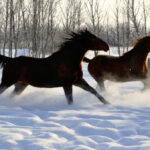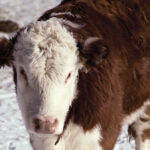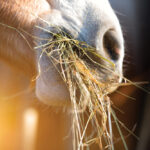
Taking the two-week grain-free challenge is worthwhile
Removing grain or processed feeds from your horse can be a good starting point in identifying dietary issues

Schoepp: When did food producers become the bad guys in movies?
‘Clifford the Big Red Dog’ is the latest offering that looks to the food sector to find a villain

Use that extra at-home time to boost your learning
Fewer meetings and networking opportunities offer more time to discover other info sources

Schoepp: Pitting one farming practice against another benefits no one
Dismissing regenerative agriculture — or synthetic fertilizer — out of hand is not the way forward

Schoepp: The narrow definition of a farmer is far from the whole story
The full story of farming needs to be told more often, and we should be proud to do that

Horses have many ways to stay warm during the winter
Putting on a blanket or feeding more grain can sometimes do more harm than good

The simple act of taking a temperature is a powerful health aid
A reading can be a warning, a sign that treatment is working or can define how sick an animal is

Schoepp: Does sourcing ingredients from around the world really make sense?
It’s time that consumers were offered the chance to buy truly Canadian food products

Forage is the key to healthy diets in horses
Forages don’t get a marketing push, but they play important roles in many areas

Schoepp: It’s harder for women to put food on table when they’re paid less
Many women make one-third less than men doing similar work

